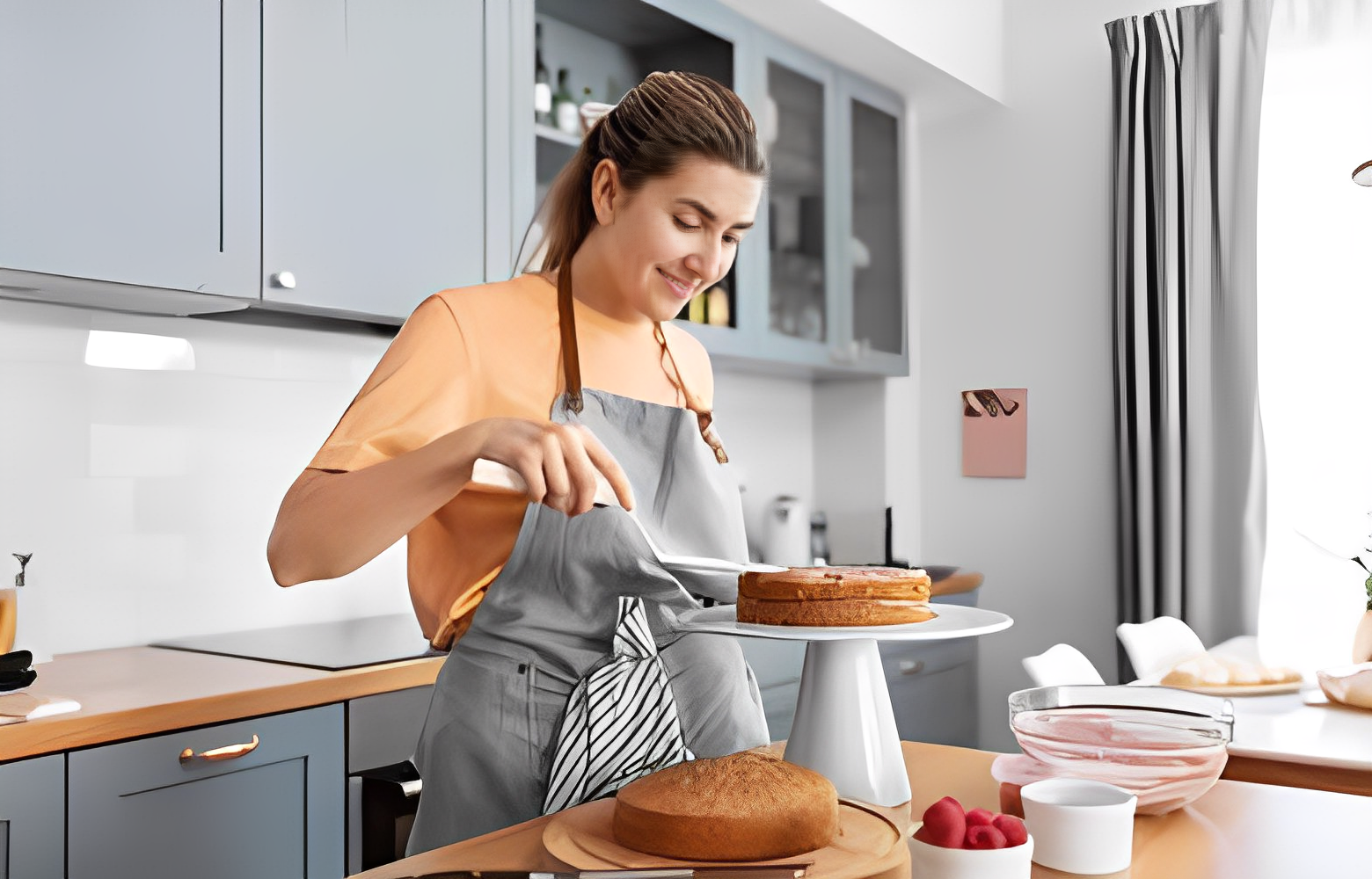|
Listen to article
Getting your Trinity Audio player ready...
|
The science behind the setting process is what will make one perfect their creation of a cheesecake. The change of the mix into a thick, velvety delight is an applauded process in many civilizations. This article discusses the finer points of this process, with advice on how to speed up cheesecake setting without sacrificing quality.
Contents
- 1 How to Speed up Cheesecake Setting
- 1.1 The Science of Cheesecake Setting
- 1.2 Why is it Important to Cool a Cheesecake before Chilling it
- 1.3 Understanding Ingredients and Their Functions
- 1.4 Making a Cheesecake Set Quicker: Tips and Techniques
- 1.5 Common Mistakes to Avoid When Preparing Cheesecake
- 1.6 Advanced Tips for Achieving Perfection
- 2 FAQs about How to Speed up Cheesecake Setting
- 2.1 Why is my cheesecake not setting properly?
- 2.2 For how many hours should a cheesecake cool before the refrigeration?
- 2.3 Is it possible to hasten the cheesecake setting process by placing it in athe freezer?
- 2.4 Why is water bath very necessary for the cheesecake baking?
- 2.5 What indicates that my cheesecake is finished baking?
- 2.6 Is it possible to make cheesecake using low-fat ingredients?
- 2.7 I wonder why my cheesecake cracked on the top?
- 2.8 Should the rest of the ingredients be room temperature?
- 2.9 What different kinds of toppings may I use for my cheesecake?
- 2.10 What is the shelf life of a cheesecake in the fridge?
- 3 Summary
How to Speed up Cheesecake Setting
A secret to a perfect cheesecake is its cooling period. To prevent the development of cracks or uneven texture due to sudden temperature changes, slow down cooling in a still warm oven. This step is crucial in getting that smooth, creamy texture we all crave.
The Science of Cheesecake Setting
However, before delving into tips on how to speed up cheesecake setting, it is important to understand the science of how cheesecake sets. The ingredients together undergo a transformation when baked, in which proteins from eggs and cheese coagulate to bind the cake. This fine balance is what makes the cheesecake texture so special.
Why is it Important to Cool a Cheesecake before Chilling it
Cheesecake should be cooled completely before being refrigerated, as this ensures that the cake sets properly and retains its firm texture.
For the filling to solidify, the cheesecake must cool. As the cheesecake cools, its structure will alter. The water in the cheesecake will evaporate and the proteins in the eggs will harden, making the cheesecake denser.
Conversely, a warm cheesecake will be lusciously soft. It won’t be as firm as a cheesecake that has cooled. If you were to slice the filling into a warm cheesecake, for example, it probably would just pour out.

By doing this, the cheesecake stays intact.
The cheesecake will get smaller as it cools. A cheesecake would crack due to the abrupt temperature change if it were taken out of the oven and sliced right away. Cracks detract from the cheesecake’s appearance and can be difficult to fix.
In order to keep the cheesecake from cracking as it shrinks, cooling is also essential. The cheesecake will be less likely to crack if you allow it to cool gradually so that it has time to acclimatize to the new temperature.
Understanding Ingredients and Their Functions
While discussing this, you must understand the ingredients and their functions.
The role of every ingredient in a cheesecake is unique. For instance, egg holds the mixture together as a binder while cream cheese gives cheesecake its smooth texture. For altering the recipe to suit one’s needs, understanding each component function is key.
Making a Cheesecake Set Quicker: Tips and Techniques
These quick setting techniques are the best answer of your question.
Room Temperature Ingredients
Because ingredients are more homogeneous at room temperature, batter is smoother and sets quicker.
Water Bath Technique
The use of a water bath ensures uniform heating which leads to faster setting and helps in eliminating cracks.
Refrigeration
After cooling at room temperature, refrigerate the cheesecake. Slow cooling initially followed by refrigeration can actually speed up the overall setting process.
Tips, for Quick Chilling
The best answer to this is quick chilling.
In a rush? Pop the cheesecake in the freezer briefly. Make sure not to leave it for too long as it may affect its texture.
Don’t Overmix
Mix the ingredients just until they are combined to avoid incorporating air, which can slow down the setting process.
Consider Gelatin
Some recipes use gelatin to speed up the setting time handy for no bake cheesecakes.
Choose an Appropriate Pan Size
Using a pan that’s the right size ensures even cooking and proper setting. A pan that is too large can result in a cake that takes longer to set.
Common Mistakes to Avoid When Preparing Cheesecake
Now you must know the common mistakes that you should avoid while preparing cheesecakes.
Avoid Overbaking
Overbaking can cause cracks. Result in a texture impacting both the setting and overall quality of your cheesecake.
Be Mindful of Temperature Changes
Rapid shifts from hot to cold can cause cracks in your cheesecake.
Minimize Oven Opening
Frequent opening of the door leads to temperature fluctuations disturbing the setting process.
Advanced Tips for Achieving Perfection
I would love to share my personal advanced tips for achieving the perfection.
Enhance Flavors
Get creative with added flavorings like vanilla or citrus zest to give your cheesecake depth and complexity.
Experiment with Crust Variations
Try out crusts such, as graham cracker, cookie based or gluten free options until you find your ideal match.
Get Creative with Decorations and Toppings
Elevate your cheesecake by experimenting with fruit toppings or drizzling some chocolate over it. Serving Recommendations; For the taste it is recommended to serve cheesecake at a cool room temperature. This allows the flavors to develop fully and enhances the experience.
FAQs about How to Speed up Cheesecake Setting
As we have all discussed almost all the aspects, I’m going to discuss some frequently asked questions about it by my fellow bakers !
Why is my cheesecake not setting properly?
Improper setting can be due to several factors: under-cooking, the wrong ingredient ratios or not giving it enough time to cool and harden in the refrigerator.
For how many hours should a cheesecake cool before the refrigeration?
The answer is “1-2 hours”
Ideally, a cheesecake should be allowed to cool at room temperature for 1-2 hours before being placed in the refrigerator and setting.
Is it possible to hasten the cheesecake setting process by placing it in athe freezer?
The Answer is “Yes”
You can put the cheesecake in the freezer temporarily to quicken up the setting. But make sure it is not left there too long to change its texture.
Why is water bath very necessary for the cheesecake baking?
The water bath helps to distribute the heat evenly and make sure that the cheesecake sinks, also it minimizes chances of cracking.
What indicates that my cheesecake is finished baking?
A cheesecake is ready to come out of the oven when its edges are set and only slightly jiggle at its centre. It will also continue to cook and set with the cooling.
Is it possible to make cheesecake using low-fat ingredients?
The Answer is “Yes”
However it might influence the texture and also taste. The creaminess and richness of a classic cheesecake come from the full-fat ingredients.
I wonder why my cheesecake cracked on the top?
Cracks can be caused by overmixed batter incorporating too much air, prolonged baking or by quick temperature changes.
Should the rest of the ingredients be room temperature?
The Answer is “Yes”
At room temperature the ingredients combine and set more homogeneously which results in an improved texture.
What different kinds of toppings may I use for my cheesecake?
Besides the usual fruit toppings, try caramel, chocolate ganache and whipped cream or even something savory like salted butterscotch.
What is the shelf life of a cheesecake in the fridge?
The Answer is ” 7 days”
A stored cheesecake can remain in the refrigerator for a maximum of 7 days.
You may also like to read about
How much does it cost to make a cheesecake?
How to cool a cheesecake quickly?
What does sour cream do in cheesecake?
Did you get the answer? Let me know in comments !
Summary
Finally , we are raping up our article how to speed up cheesecake setting. Becoming skilled, in the craft of making cheesecake can be a pursuit. By comprehending the aspects and applying these suggestions you can indulge in your cheesecake sooner while still savoring its delicious flavor and delightful texture. Remember, although creating a cheesecake requires patience these techniques can help reduce the waiting time.



1 comment